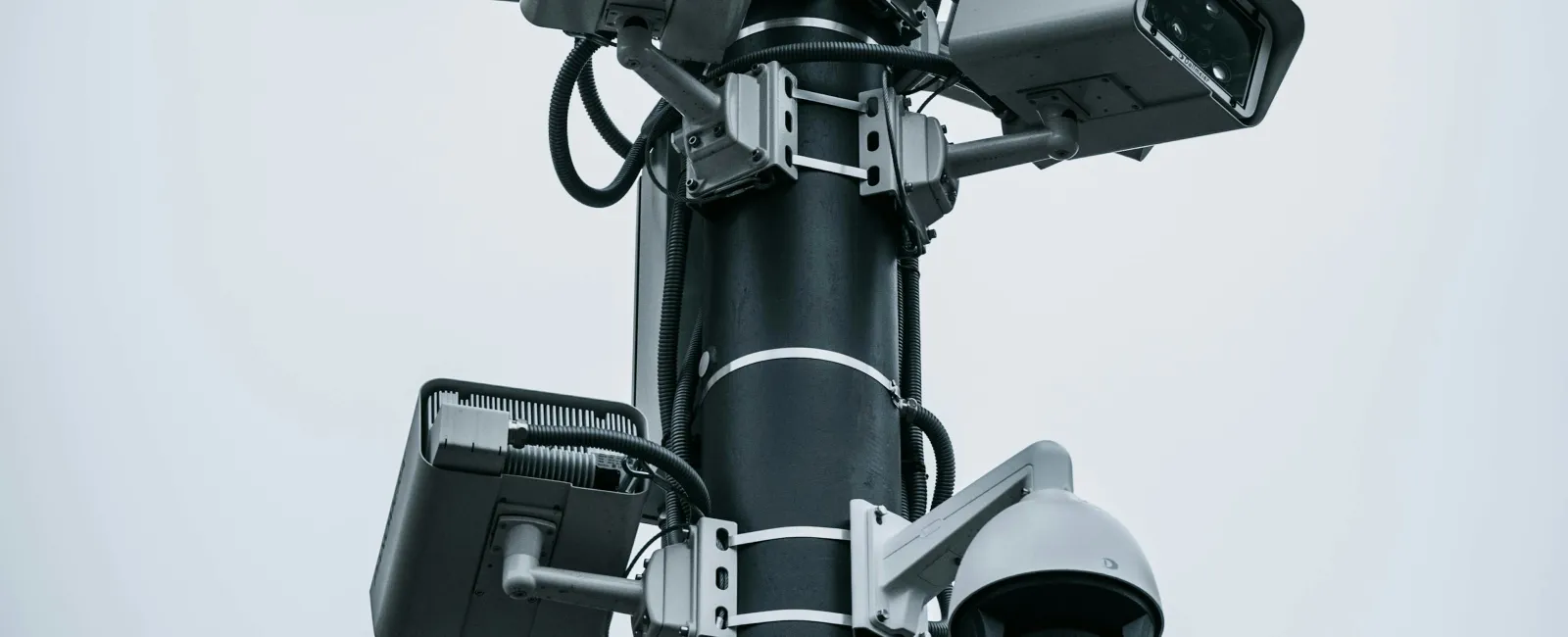May 09, 2025
Installing security cameras can help improve safety, deterring crime, and monitoring activity, but it also comes with legal responsibilities. Whether you're setting up a surveillance system for an office, warehouse, or hospital, it's critical to understand the legal implications of camera placement and usage.
While iS3 specializes in commercial security camera systems and access control installations, it's important for business owners and property managers to be aware of the laws on surveillance cameras in public places and private ones. In most cases, the goal is to protect people and property, not to violate someone's privacy or cross legal boundaries.
What Businesses Need to Know About Surveillance Camera Laws
Security camera laws vary by state, but the core principle remains consistent: surveillance is generally allowed where there is no reasonable expectation of privacy. For businesses, this typically includes areas like parking lots, entryways, lobbies, and production floors.
However, violating camera privacy laws by installing cameras in areas like restrooms, locker rooms, or employee break rooms can lead to legal trouble, regardless of your intent.
Laws on Surveillance Cameras in Public Places
Most commercial properties can legally record video in public-facing areas. That includes:
Building entrances and exits
Hallways and reception areas
Garages and loading docks
However, audio recording can create legal risks even in public or semi-public spaces. Some states require two-party consent for recording conversations, while others only need one party's knowledge. The risk of accidental violations is real.
Is It Illegal to Have Cameras in Bathrooms?
Yes. In every state, it is illegal to have cameras in bathrooms, changing rooms, or any area considered private. For commercial facilities, this is a hard line that should never be crossed. Even if the intent is to prevent theft or damage, placing cameras in restrooms violates privacy rights and is likely to result in criminal charges.
At iS3, we ensure that surveillance systems are strategically placed to monitor necessary areas without ever compromising legal boundaries or personal privacy.
Can a Landlord Have Cameras Outside the House?
For those managing rental properties or multifamily buildings, landlords are typically permitted to install exterior security cameras in common areas. These may include:
Building entrances
Parking lots
Mail rooms
Shared hallways
However, surveillance cannot infringe on a tenant's private living space. A landlord cannot install cameras inside a tenant's unit or angle a camera so that it captures inside their windows. Doing so would likely be considered an invasion of privacy.
For commercial and multifamily properties, iS3 designs exterior surveillance systems that deter criminal activity while respecting resident boundaries and local laws.
Security Camera Placement Laws for Commercial Properties
Understanding security camera placement laws is essential for any business. It's not just about where you put cameras, it's also about what they record, how the footage is used, and whether people are aware they're being monitored.
Some guidelines include:
Avoid placing cameras in restrooms or private offices
Clearly mark areas that are under surveillance
Use signage to inform visitors and staff that video monitoring is in place
Is It Illegal to Have Cameras Inside Your House?
In most cases, installing cameras inside your home is legal. However, placing cameras in private areas like bathrooms or guest rooms without notifying occupants can violate privacy laws and should be avoided.
For businesses, the takeaway is similar. Surveillance in common workspaces is allowed. Secretly filming people in private areas is not.
Avoiding Legal Pitfalls in Commercial Surveillance
So, what are the key takeaways for businesses considering a commercial surveillance system?
First, know that iS3 understands industry best practices that help clients stay informed about camera privacy expectations and placement norms. We ensure our commercial installations avoid high-risk areas and are strategically designed to maximize safety, visibility, and compliance.
Whether it's a warehouse needing perimeter cameras or a multi-level office building requiring access control at key entries, iS3 delivers scalable, professional systems that are built with both effectiveness and ethics in mind.
Summary: Legal Considerations for Commercial Camera Installation
If your business is installing security cameras, understanding legal boundaries is just as important as having the right equipment. Working with a qualified company like iS3 is beneficial because we install innovative, professional systems that reflect standard security practices, prioritize privacy, and help reduce liability risks.
Secure Your Property the Right Way with iS3
At iS3, we specialize in commercial surveillance camera systems and access control. Our expert team designs, installs, and supports solutions for businesses, property managers, and organizations that take security seriously.
Contact iS3 today to request a consultation and see how we can help you build a safer, smarter facility with expert commercial surveillance solutions.
